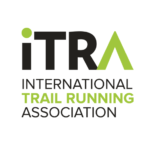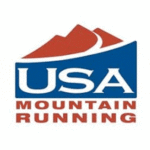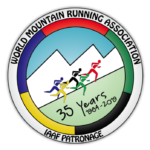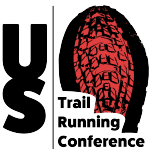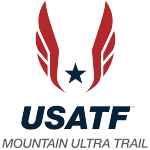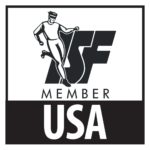
Written by Richard Bolt and Dave Dunham, self proclaimed mountain running historian and silver medalist at the 1993 World Mountain Running Trophy race.
The following is a history of US individual and team podium results in the World Mountain Running Trophy (1985-2009) / World Mountain Running Championships (2010-2019). This championship event was organized by the World Mountain Running Association and was for teams from national athletic federations and alternated between and uphill and up/down race formats. U.S. teams were selected by USA Track & Field – the national athletic federation of the United States.
The senior races for athletes 20 years and older were between 8 km and 12 km. The junior races for athletes between 16 and 19 years old were between 4 km and 8 km. The course have been primarily trail but include some pavement and have considerable amounts of vertical climb. Mountain running race distances and elevation gain/loss are defined in World Athletics rule 251.

US team member Lyndon Elefson in the Alps.
The first World championship was held in 1985 in San Virgilio Marebbe, Italy. Ten teams competed in the format which included juniors, a short senior race which was up and down, and a long senior race which was run on an all up course. The US did not field a team but Gina Poncini finished 19th in the women’s race. The field size increased in 1986 as 15 countries were represented in Morgegno, Italy. The United States did not field a team, nor did any individual runners from the US compete.
The 1987 race was held in Lenzerheide, Switzerland. Although the US again did not field a team, Jay Johnson (Colorado) took home gold in the long (uphill only) race. Pablo Vigil was the only other US runner, taking 9th place in the field which included runners from 16 countries.
The 1988 and 1989 trophy races were held in Keswick, England and Die Drome, France respectively. The US did not field a team, nor did any individual runners from the US compete. The 1989 race had a record 20 countries compete.
1990 was a turning point for the US as the first complete men’s team took on a record 25 countries. The team finished 8th with 80 points. The format at the time had three runners scoring. The team was led by Jay Johnson’s 9th place finish. Brett Burt and Mountain running pioneer Lyndon Ellefson rounded out the scoring in 27th and 44th respectively.

Dave Dunham with (left to right) Rob Reece, Lyndon Elefson, Dan Verrington and Mike Casner.
1991 – Zermatt, Switzerland. Jay Johnson again led the US team with a 22nd place finish. The team finished 14th in a field of 23 teams.
1992 – Susa, Italy. Dave Dunham was the top US finisher in 9th place. The men’s team had its best finish yet with a 7th place finish with Jay Johnson and Tom Sobal (Colorado) placing 24th and 56th respectively.
1993 – Gap, France. The format for the ninth running of the World trophy featured a major shake-up. Due to monetary restrictions the format was changed to annually alternate between and “up/down” and “up only”, this would eliminate the “long” and “short” course format. In addition team scoring was changed with four runners scoring for the men and three runners scoring for the women. Dave Dunham became the second US medalist taking 2nd place. The team finished 12th among 16 teams. 22 countries competed.
1994 – Berchtesgaden, Germany. A record 24 countries competed in the first “up only” version of the World trophy. Dave Dunham was top US finisher in 15th, leading the team to a 10th place finish.
1995 – Edinburgh, Scotland. This was another turning point for the US as the first ever US Women’s team was present. The women finished 18th, lead by Melissa Johnson in 44th place. Nancy Hobbs, who would go be instrumental in USA mountain running, was the third woman in 67th place. The men had a disappointing showing over the steep up/down grass course finishing 15th; the worst place yet by a US team.
1996 – Telfes, Austria. The men and women both had the best point total to date with each having 152 points. The men finished 9th, led by Dave Dunham in 19th place and Mike Casner (New Hampshire), Dan Verrington (Massachusetts), and Eric Morse (Vermont) all finishing within a span of 23 seconds. Danelle Ballengee (Colorado) led the women in 44th place, as they took 17th place.
1997 – Upice, Czech Republic. A record 28 countries took part in the “up/down” version of the Trophy. The US fielded its first ever Junior team as Hillary and Sarah Verrington took 33rd and 34th place. The women had their best finish to date, taking 12th place. Lisa Goldmsith, Danelle Ballengee, and Mia Stockdale finished in a span of 8 places. The men’s team was led to a 10th place finish with Scott Gall’s 27th place finish.
1998 – Entre Deux, Reunion (France). A record 29 countries made the long trip to Reunion, a French held island off of the coast of Madagascar. The men scored their best finished to date with an eight place finish. They were led by Richard Shelley (New Mexico) and Dave Dunham in 31st and 34th respectively. The women tied their best finish yet with a 12th place finish, with Kirsten Ames leading the charge in 29th place.

Paul Low, Dave Dunham, Dan Verrington and Tom Anderson at the 1999 World Mountain Running Trophy.
1999 – Kota Kinabalu, Malaysia. 26 countries were represented in another venture far from the hotbed of Mountain racing in Europe. The women finished in the top 10 for the first time with their 10th place team finish. They were led by Suzy West (Vermont) who was closely followed by Danelle Ballengee who finished four seconds later. The men took 9th led by Scott Gall’s 5th place finish. 1999 U.S. team photos available on Google Photos.
2000 – Bergen, Germany. A record tying 29 countries took part in the 16th running of the World Trophy. The women tied their best finish to date with another 10th place finish. The time difference for the three scoring women was an impressively small 68 seconds with Cindy O’Neill leading the way in 30th place. The men finished 9th in a best to date 142 points. They were led by Dave Dunham who finished in 12th place.
2001 – Arta Terme, Italy. The women’s team finished in their best position yet, taking 9th place among 21 full teams. They were led by Kari Distefano in 21st place. The men’s team had to scramble to fill the squad as some runners were unable to travel due to flight restrictions after the September 11th terrorist attacks in the United States. They finished 18th and were led by Ryan Pauling in 24th place.
2002 – Innsbruck, Austria. For the first time, the US fielded a full squad in all categories. The Junior boys finished 12th in their first showing at the World trophy, Eduardo Pasko led the charge with a 22nd place finish. The Junior girls took 14th and were led by Jessica Pitzer in 35th place. The women again tied their best place to date, taking 9th place. They were led by Anita Ortiz (Colorado) who finished in a women’s all-time leading 11th place. The men were led by Paul Low (Massachusetts) in 32nd place, to a 14th place finish among 26 teams.
2003 – Girdwood (Alaska), United States. In another first, the US hosted the World trophy in the 19th annual World championships. The “up/down” version was held over two days and featured an early season snow squall which coated the often muddy course. The junior girls, led by Maggie McNanigal in 30th, took their first top ten finish taking 10th. The junior boys with Andrew Payton, Edwardo Pasko, and Rory Eglus finishing within a span of 79 seconds improved one place over 2002, finishing in 11th. The women were led by Anita Ortiz, who lowered her all-time leading place three notches, in 8th place. The women scored an all-time best of 71 points to take 9th place. The men were led by Paul Low who finished in 15th place. The team finished 8th out of 18 teams. 2003 U.S. team photos available on Google Photos.

The 2004 US Mountain Running Team in Italy.
2004 – Sauze d’Oulx, Italy. The women’s team became the first US team to medal, taking home the bronze. The women were again led by Anita Ortiz who tied her place from 2002 (11th). The junior women scored an all-time best 44 points to finish in the top ten for the first time with a 9th place finish. They were led by Dominique Colberg’s all-time best 19th place. The Junior boy’s finished 17th, led by John Ricardi in 51st place. The men scored a record low 102 points to take 8th place in the field of 27 teams. The US was led by Simon Gutierrez and Paul Low who finished 17th and 19th respectively.
2005 – Wellington, New Zealand. The men led the way this year with a best to date 6th place finish. The team was led with Gutierrez’s 10th place finish. The women dropped five places despite only scoring 13 more points than 2004’s bronze medal team. They were led by Laura Haefeli’s (Colorado) 8th place finish. A smaller than average field for the juniors meant low points but high finishes for the teams. The junior girls finished 9th out of nine team with Kathryn Helmerick first to cross the line in 24th. The boys finished 10th out of 12 teams with Christian Thompson the first finisher in 28th place. 2005 U.S. team photos available on Google Photos.
2006 – Bursa, Turkey. The women became the first ever Gold medal team for US mountain running. The ladies won a close battle to win by two points. For the first time ever two US athletes finished in the top ten as Nicole Hunt (Montana) and Rachael Dobbs (New Mexico) crossed in 9th and 10th. The men had their best finish ever taking 5th place. Gutierrez and Eric Blake crossed the line 7 seconds apart in 10th and 11th. The junior boys also had the best finish yet for a junior team, taking eight place. The boys were led by Andrew Benford (West Virginia) who had the best junior boy performance to date with his 12th place finish. 2006 U.S. team photos available on Google Photos.

Silver medal winning 2007 US junior women’s team.
2007 – Ovronnaz, Switzerland. The U.S. Women won a second Gold Medal with Laura Haefeli winning the first ever individual women’s medal. The Junior Women won a Silver Medal, the first ever for a Junior Team. As you can see, this is an exciting time for Mountain Running in the U.S. and we hope to continue the growth and competition for spots on the U.S. Team. 2007 U.S. team photos available on Google Photos.
2008 – Sierre, Switzerland. The 2008 World Mountain Running Trophy saw the US Men win their first ever team medal. Alex Dunne won the first ever Junior US Women’s individual medal with her 3rd place finish. 2008 U.S. team photos available on Google Photos.
2009 – Campodolcino, Italy. The US senior women placed 3rd as a team. 2009 U.S. team photos available on Google Photos.
2010 – Kamnik, Slovenia. The US senior men’s team won a silver medal. 2010 U.S. team photos available on Google Photos.

The 2011 US Mountain Running Team at the US Embassy in Albania.
2011 – Tirana, Albania. In a historic first, Max King and Kasie Enman win gold medals in the senior races. 2011 U.S. team photos available on Google Photos.
2012 – Ponte di Legno, Italy. Former olympic cross country skier Morgan Arritola wins a bronze medal in the senior women’s race. With 3rd, 7th (Stevie Kremer) and 8th places (Melody Fairchild), the US senior women’s win the team gold medal. 2012 U.S. team photos available on Google Photos.

2013 Junior World Mountain Running Champion Mandy Ortiz.
2013 – Krynica-Zdroj, Poland. This is the first down/up format world championship to start & finish at the top of a mountain. Mandy Ortiz wins gold in the junior women’s race leading her team to a silver medal. 2013 U.S. team photos available on Google Photos.
2014 – Casette di Massa, Italy. This uphill format race went through and finished in a carrara marble mine. Allie McLaughlin wins the bronze medal in the senior women’s race. The US senior women’s team win a bronze medal. The US junior women’s team win a silver medal. 2013 junior women’s world champion Mandy Ortiz finishes in a strong 4th place. 2014 U.S. team photos available on Google Photos.
2015 – Betws-y-Coed, Wales. Alaskan Allie Ostrander wins the junior women’s race. Fellow Alaskan Levi Thomet wins a silver medal in the junior men’s race. The US senior women and junior men’s teams win a silver medals. 2015 U.S. team photos available on Google Photos.

Kim Nadeau, Ladia Albertson-Junkans, Addie Bracy and Bethany Sachtleben in 2016.
2016 – Sapareva Banya, Bulgaria. Joseph Gray wins his first world mountain running championship leading the senior men’s team to a gold medal. The US senior women’s team wins the bronze medal by one point over Great Britain. 2016 U.S. team photos available on Google Photos.
2017 – Premana, Italy. This is the first time the World Mountain Running Championship and World Long Distance Mountain Running Championship are hosted at the same venue on back to back weekends. Lauren Gregory wins the bronze medal in the junior women’s race. The US senior women’s team win the gold medal. The US senior men win a team bronze medal. The US junior women’s team win the silver medal. Talon Hull won a Bronze Medal in the junior men’s race. 2017 U.S. team photos available on Google Photos.
2018 – Canillo, Andora. Uganda sweeps the podium in the senior men’s race with Joseph Gray crossing the line 4th as the top American finisher. 2018 U.S. team photos available on Google Photos.

2019 World Mountain Running Champion Joseph Gray.
2019 – Villa la Angostura, Argentina. Grayson Murphy wins her first world championship in the senior women’s race. Joseph Gray wins his second world mountain running championship in the senior men’s race. The US senior men’s team wins the silver medal. 2019 U.S. team photos available on Google Photos.
2020 – Lazarote, Spain. Cancelled due to COVID-19 pandemic.
Complete results for all World Mountain Running Trophy / Championships since 1985 can be found on the World Mountain Running Association website.
Starting in 2021 this championship has been replaced by the World Mountain & Trail Running Championships. This inaugural championship is supported by World Athletics, World Mountain Running Association (WMRA), International Trail Running Association (ITRA) and the International Association of Ultrarunners (IAU).
Interested elite athletes can learn more about qualifying for world championships teams, national championships, American ultrarunning records and more at: https://trailrunner.com/usatf-mut



